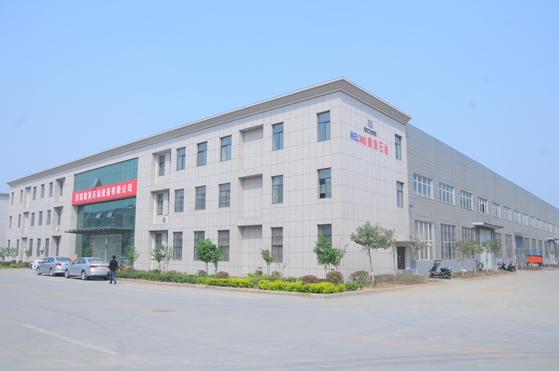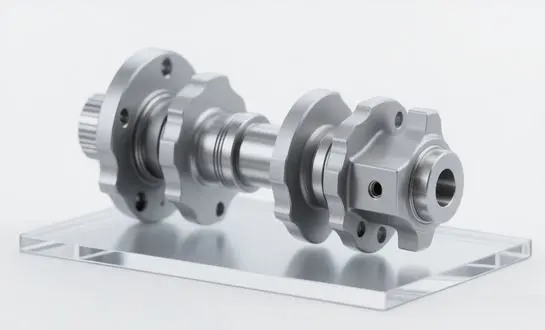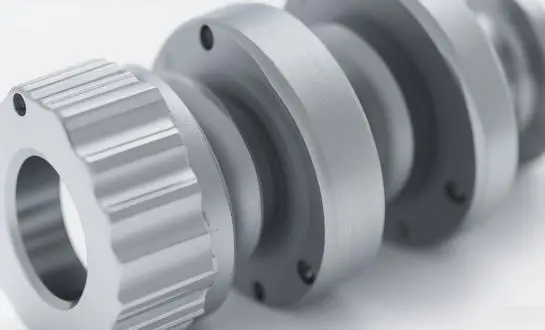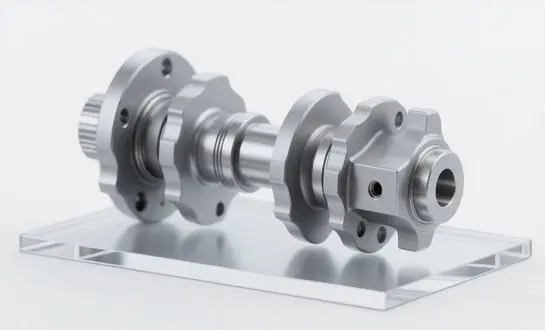Casing scrapers in oil and gas wells: Maintenance Guide
A casing scraper is very important for keeping oil and gas wells safe and working well. This specialist tool is designed to clean the inside walls of well casings, getting rid of dirt, cement residue, rust, scale, and other undesired things that might build up over time. A casing scraper makes ensuring that fluids flow properly, improves the efficiency of downhole equipment, and increases the overall productivity of the well by cleaning the casing well. The main job of the scraper is to get the casing ready for other tasks, such logging, perforation, or putting in completing equipment. Before cementing operations, it is very vital to utilize it to make sure the casing and cement stick together well. WELONG is a well-known maker of oilfield equipment that makes high-quality casing scrapers that are noted for being tough and working well in tough downhole conditions.

Things People Get Wrong About Casing Scraper Use
There are still a lot of wrong ideas regarding casing scrapers in the oil and gas business, even though they are quite important for keeping wells in good shape. A lot of people think that casing scrapers are only needed for older wells. In fact, scraping operations may help even recently drilled wells by getting rid of drilling mud residue and making sure that the next steps are done in the best possible circumstances.
Dispelling Misconceptions Regarding Casing Scraper Efficacy
People also think that casing scrapers don't work in wells that are horizontal or have a lot of bends. WELONG makes modern casing scrapers that can handle complicated well shapes and clean thoroughly even in tough conditions. Some people also think that casing scrapers might harm the casing itself. When constructed and used correctly, casing scrapers are made to clean without damaging the casing structure.
Knowing the limits of other ways to clean
Some operators may think that circulation alone is enough to clean casings, however this procedure is frequently not enough to get rid of tough deposits or get the surface ready for important tasks like cementing. Casing scrapers use a mechanical cleaning action that is much better at making sure the surface is clean and free of dirt. It is important to know about these limits in order to use the right well management techniques and get the best performance from your well.
Looking at the dangers of not cleaning the casing well enough
If you don't clean well casings correctly, it may cause a lot of difficulties that affect both the short-term and long-term production of oil and gas wells. There are several problems that come with not cleaning the casing properly, and they may lead to big financial losses and delays in operations.
Possible Effects of Not Keeping Up with Casing Maintenance
The danger of bad cement bonding is one of the most pressing ones. If dirt and other impurities are left on the casing surface, they might stop the cement from sticking properly, which can cause channels and micro-annuli. These flaws may let fluids move about, which can damage the well and pose a risk to the environment. Also, not cleaning properly may mess up recording equipment, giving you wrong information that might lead to wrong conclusions about the state of the well and bad decisions.
The effect on the economy of problems with casing
Not cleaning the casing properly might have big effects on the economy. Poor casing maintenance may lead to lower production rates because of flow constraints, more workovers, and early well abandonment. In addition, the expenses of fixing well integrity concerns or dealing with environmental issues that come up because of them may be far more than the cost of normal casing scraping operations. Operators may reduce these hazards and safeguard their investments in well infrastructure by using high-quality casing scrapers from trusted brands like WELONG.
Identifying Primary Causes of Poor Cement Bond Quality
In the building of oil and gas wells, poor cement bond quality is a big problem since it may cause problems with the integrity of the well and lower production efficiency. To put in place effective preventative measures, it's important to know what causes bad cement bonding.
Contamination of the surface and its effects
Surface contamination on the casing is one of the main reasons why the bond quality of the cement is poor. Drilling mud residue, rust, scale, and other debris might get in the way of the cement sticking to the casing. This contamination may happen if you don't clean well enough or utilize equipment that don't work. These pollutants may be removed successfully by high-quality casing scrapers, which get the surface ready for the best cement bonding.
How the shape of the well affects where the cement goes
It may be hard to provide homogeneous cement placement in wells with complicated shapes, especially in deviated or horizontal parts. If the cement isn't spread out evenly, it might create weak areas in the cement sheath, which can damage the well. Using casing scrapers correctly, particularly those specialized for getting through difficult well pathways, will assist make sure that the whole casing surface is ready for cementing work.
Setting the Right Rules for Using a Scraper
Following the right rules and best practices is important for making casing scraping operations as successful as possible. These rules make sure that the casing scraper works as effectively as possible and helps with the overall success of well completion and maintenance operations.
Choosing the Right Types of Scrapers
For cleaning to work, it's important to use the correct sort of casing scraper. You should think about the well's diameter, depth, and shape, as well as the kind of impurities that need to be removed. WELONG offers a variety of casing scrapers that work in different well conditions, so operators may choose the equipment that works best for their needs.
Best Operating Conditions
To clean thoroughly without harming the casing, it is important to find the right operational parameters, such the speed of rotation and the weight on the scraper. These numbers could change based on the well conditions and the design of the scraper. Following the manufacturer's instructions and the best practices in the industry helps make sure that the scraper is used safely and effectively.
Giving instructions on how to prepare wells properly
Properly preparation is very important for making sure that later activities, such cementing, logging, or production, go properly. Using casing scrapers correctly as part of a complete plan for well preparation may greatly improve the performance and lifespan of the well.
Planning and assessing before scraping
Before starting scraping activities, it is important to carefully check the condition of the well. This may include using caliper logs to find problem spots and figure out the best way to set up the scraper. Planning should also take into account the well's past, such as any treatments that have been done on it or problems that are known to exist that might hinder the scraping process.
Quality Control and Verification After Scraping
It's important to check if the cleaning procedure worked once the scraping is done. This might include running more logs or using downhole cameras to look at the surface of the casing. Quality control steps make sure that the well is ready for the next steps, which lowers the chance of problems and improves the overall performance of the well.
Conclusion
In conclusion, casing scrapers are very important for keeping oil and gas wells safe and working well. These tools make sure that the cementing is done correctly by getting rid of dirt, scale, and other pollutants from the casing surface. They also improve the functioning of downhole equipment and increase the well's overall productivity. To get the most out of your well operations and save long-term maintenance expenses, it's important to know how to clean the casing properly, choose the appropriate scraper for the task, and use it correctly. As the oil and gas sector continues to deal with problems in complicated well settings, high-quality casing scrapers like those made by WELONG become more and more important for making sure that oil and gas wells are successful and last a long time.
FAQ
1. How often should casing scraping be performed in a typical oil or gas well?
The frequency of casing scraping depends on various factors, including well conditions, production rates, and the type of fluids being extracted. Generally, it's recommended to perform casing scraping before any major well intervention, such as workover operations or re-completion. For some wells, this might mean scraping every 1-2 years, while others may require more frequent cleaning. Regular monitoring and assessment of well performance can help determine the optimal scraping schedule.
2. Can casing scrapers be used in all types of well casings?
Casing scrapers can be used in most types of well casings, including steel, chrome, and even some composite materials. However, the specific design of the scraper may need to be adjusted based on the casing material, diameter, and well conditions. It's important to consult with experienced manufacturers like WELONG to ensure the selection of an appropriate scraper for your specific well casing type.
3. What are the signs that a well may need casing scraping?
Several indicators suggest a well may benefit from casing scraping:
- Reduced production rates or flow efficiency
- Abnormal pressure readings
- Difficulties in running tools or equipment downhole
- Poor cement bond log results
- Increased sand or debris production
- Inconsistent or unexpected logging tool responses
If any of these signs are observed, it may be time to consider a casing scraping operation to restore optimal well conditions.
Choose WELONG for Your Casing Scraper Needs
When it comes to ensuring the integrity and productivity of your oil and gas wells, choosing the right casing scraper supplier is crucial. WELONG stands out as a leading manufacturer of high-quality oilfield equipment, including state-of-the-art casing scrapers. With over 20 years of experience in the industry, we understand the unique challenges faced by oil and gas operators and provide tailored solutions to meet your specific needs.
Our casing scrapers are engineered for optimal performance in a wide range of well conditions, ensuring thorough cleaning and preparation of well casings for critical operations. By choosing WELONG, you benefit from our commitment to quality, innovative design, and exceptional customer service. Don't compromise on the efficiency and longevity of your wells – partner with WELONG for reliable, high-performance casing scrapers that deliver results.
Ready to optimize your well maintenance strategy? Contact our team of experts today at oiltools15@welongpost.com to discuss your casing scraper requirements and discover how WELONG can support your operations as your trusted Casing Scraper supplier.
References
- Smith, J. R. (2019). Advanced Casing Cleaning Techniques in Modern Oil and Gas Wells. Journal of Petroleum Technology, 71(5), 62-68.
- Johnson, A. L., & Brown, T. E. (2020). The Impact of Effective Casing Scraping on Cement Bond Quality. SPE Drilling & Completion, 35(2), 145-153.
- Thompson, R. S. (2018). Optimizing Casing Scraper Design for Complex Well Geometries. Offshore Technology Conference Proceedings, OTC-28964-MS.
- Davis, M. K., & Wilson, P. J. (2021). Economic Analysis of Proactive Casing Maintenance in Mature Fields. SPE Production & Operations, 36(3), 520-529.
- Lee, S. H., & Garcia, C. (2017). Innovative Casing Scraper Technologies for Enhanced Well Integrity. International Petroleum Technology Conference Proceedings, IPTC-21409-MS.
- Anderson, R. T., & Martinez, E. (2022). Best Practices for Casing Preparation in High-Temperature, High-Pressure Wells. SPE Drilling & Completion, 37(1), 78-86.

Share your inquiry, get the quotation accordingly!

CHINA WELONG - 20+ years manufactuer in oilfield tools


